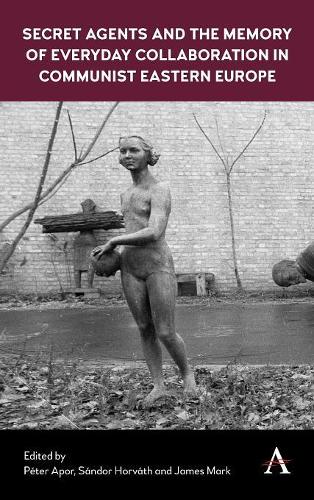
Secret Agents and the Memory of Everyday Collaboration in Communist Eastern Europe
(Hardback)
Publishing Details
Secret Agents and the Memory of Everyday Collaboration in Communist Eastern Europe
By (Author) Pter Apor
Edited by Sndor Horvth
Edited by James Mark
Anthem Press
Anthem Press
27th September 2017
United Kingdom
Classifications
Professional and Scholarly
Non Fiction
335.430947
Physical Properties
Hardback
376
Width 153mm, Height 229mm, Spine 26mm
454g
Description
Whilst debates over secret agents and the revelation of lists of former collaborators have fascinated both post-Communist societies and the wider world, it is surprising how little has been written either on the nature of Communist-era collaboration or the processes through which post-Communist societies have sought to make sense of what collaboration was, and how it should be dealt with in the present. This is surprising given the amount of work that has been produced on the themes of resistance and victimization. Unlike more popular (and often lurid) accounts of collaboration, which naturalize the concept as an obvious and incontestable characterization of Communist-era behaviour, this work rather interrogates the ways in which post-socialist cultures produce the idea of, and knowledge about, 'collaborators'. It addresses those institutions which produce the concept and examines the function, social representation and history of secret police archives and institutes of national memory that create these histories of collaboration.
Reviews
Journal Europe-Asia Studies
Author Bio
Sandor Horvath is a permanent Research Fellow and the Head of Department for Contemporary History at the Institute of History, Research Centre for the Humanities, Hungarian Academy of Sciences. James Mark is professor of history at University of Exeter. His research addresses the social and cultural history of state socialism in central-eastern Europe, the politics of memory in the area during both socialism and post-socialism. Peter Apor is a permanent research fellow at the Institute of History, Research Centre for the Humanities, Hungarian Academy of Sciences.
